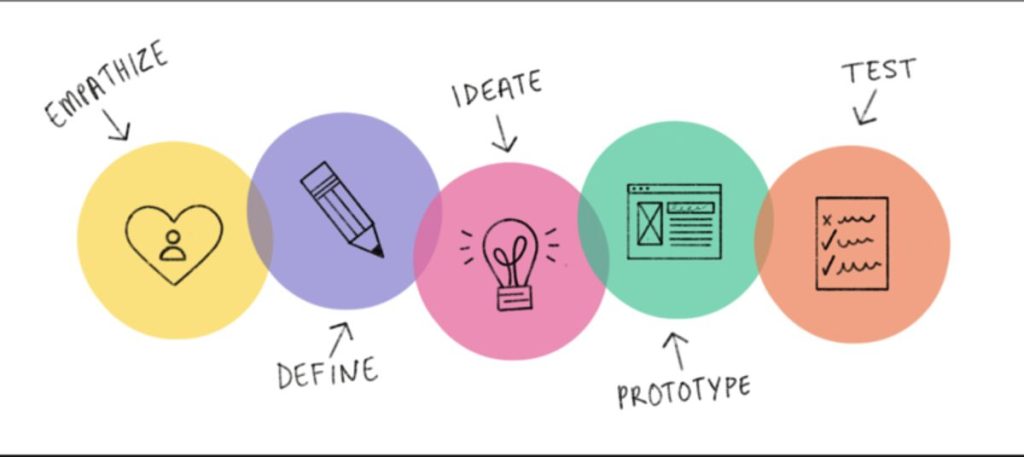In today's world, pet owners are increasingly seeking holistic approaches to ensure the overall well-being of their canine companions. Holistic dog health focuses on treating the whole animal, considering physical, mental, and emotional health aspects. This guide will provide you with comprehensive insights into holistic dog health, from nutrition and exercise to natural remedies and preventative care, ensuring your dog leads a healthy and balanced life.
Key Takeaways
- Holistic dog health addresses the entire well-being of dogs, including physical, mental, and emotional aspects.
- Balanced nutrition, whether homemade or commercial, is crucial for holistic dog health.
- Regular physical exercise and mental stimulation are essential components of a holistic approach.
- Natural remedies and alternative therapies can complement conventional veterinary care.
- Preventative care, including routine vet visits and dental health, is vital for maintaining overall health.
Understanding Holistic Dog Health
What is Holistic Dog Health?
Holistic dog health looks at your pet's overall health instead of just focusing on treating individual symptoms. It's a comprehensive approach that aims to maintain a balanced lifestyle for your pet, taking into account mental, physical, and emotional well-being. Holistic healing offers a rich, multifaceted approach to pet health that aligns with the natural functions of the animal body. This means that when you view your pet's health through a holistic lens, you realize that it’s not just about brushing your dog's coat to keep it healthy; the first step to a healthier coat is actually inside your dog's diet!
The Benefits of a Holistic Approach
Adopting a holistic approach to your dog's health can lead to numerous benefits. For one, it promotes overall well-being by addressing the root causes of health issues rather than just the symptoms. This can result in a happier, more energetic pet. Additionally, holistic methods often involve natural and minimally invasive treatments, which can be less stressful for your dog. Balanced nutrition and understanding a pet’s needs are central to holistic care.
Common Misconceptions
There are several misconceptions about holistic dog health that need to be debunked. One common myth is that holistic means no medicine. In reality, holistic care can include conventional treatments when necessary. Another misconception is that it's too expensive. While some holistic treatments can be costly, many are quite affordable and can even save money in the long run by preventing serious health issues. Finally, some people believe that holistic methods are not scientifically proven. However, many holistic practices are evidence-based and have been shown to be effective in promoting pet health.
Holistic dog care courses for well-being, vitality, and longevity. Achieve harmony in health for beloved dogs.
Nutrition for Holistic Dog Health
Balanced Diet Essentials
A cornerstone of holistic pet care is diet, which can significantly affect health outcomes. Customized nutrition plans are key, including specific diets for weight management, allergy avoidance, or disease support. Integrating these treatments into a pet’s healthcare routine can provide comprehensive support for everyday well-being and long-term health.
Homemade vs. Commercial Food
How to safely feed a homemade diet to optimize your dog’s nutritional intake and cut harmful, processed ingredients from their diet. Easy-to-implement feeding routines based on the weight of your dog. How to make wholesome homemade meals, snacks and supplements. The best tools to stimulate your dog’s mind. Simple tricks to remove stressors from your dog’s day-to-day life. Straightforward lifestyle improvements to ensure your dog’s long-term health and happiness.
Supplements and Natural Remedies
Holistic veterinarians may also recommend supplements to address deficiencies or enhance diet effectiveness. This modern yet timeless veterinary care practice promises our animal companions a brighter, healthier future by treating them as whole beings. Balanced nutrition and understanding a pet’s needs are central to holistic care.
Embrace holistic nutrition for a healthier, happier home.
Exercise and Physical Well-being
Daily Exercise Routines
Daily exercise is fundamental to maintaining your pet’s overall physical health and well-being. Just like us, pets require regular physical activity to keep their bodies in peak condition. It helps them prevent obesity, promotes cardiovascular health, and reduces the risk of various health complications. Without regular exercise, it can be a challenge to maintain a healthy weight for your pets. This often leads to obesity-related problems like diabetes, breathing issues, and joint pain.
Mental Stimulation Through Play
Making exercise enjoyable for your pets helps them stay active and mentally stimulated. Well-being routines for pets that include regular exercise also help improve muscle tone, joint flexibility, and overall agility. Remember to modify the intensity of exercise based on your pet's fitness level and health status. If you’re unsure, reach out to your vet before starting a new exercise regimen, especially if your pet has pre-existing health conditions.
Alternative Physical Therapies
For different pets, there are different exercise needs. Understanding your pet will help you establish a health and fitness routine that suits their needs. Some alternative physical therapies include:
- Swimming: Great for joint health and low-impact exercise.
- Hydrotherapy: Beneficial for rehabilitation and muscle strengthening.
- Massage therapy: Helps in reducing stress and improving circulation.
Ensuring your dog gets the right amount and type of exercise is crucial for their overall well-being. Tailor their exercise routine to their specific needs and watch them thrive!
Mental and Emotional Health
Recognizing Stress in Dogs
Dogs, like humans, can experience stress and anxiety. Recognizing the signs early can help you address the issue before it escalates. Common signs of stress in dogs include excessive barking, destructive behavior, and changes in appetite. By incorporating these mental enrichment activities and creating a stimulating environment at home, you're actively contributing to your pet's cognitive development and emotional well-being. A mentally stimulated pet is not only happier but also less likely to engage in destructive behaviors born out of boredom.
Techniques for Reducing Anxiety
There are several techniques you can use to help reduce your dog's anxiety. These include providing a safe space, using calming aids like pheromone diffusers, and engaging in regular exercise. Armed with these nutritious recipes and incredible mental enrichment strategies, you can rest easy knowing the mental and physical wellbeing of your beloved canine is taken care of.
The Role of Socialization
Socialization is crucial for a dog's mental and emotional health. It helps them learn how to interact with other dogs and humans, reducing fear and aggression. Given the freedom to express themselves and live their lives to the fullest, they should be free from distress, fear, pain, discomfort, injury, and diseases. When they get sick, their medical needs should be addressed. Special care and attention should be given during their senior years to make them feel wanted despite their decreased activity.
Just like humans, pets benefit from activities that challenge their intellect and are part of a holistic approach to their happiness and fulfillment. Let’s talk about several DIY mental enrichment ideas you can incorporate into your pet's health and wellness routine and how to create a mentally enriching environment right in your home.
Natural Remedies and Therapies
Herbal Treatments
Herbal treatments can be a fantastic way to support your dog's health naturally. Herbs like chamomile and valerian root are often used to calm anxious dogs, while milk thistle can support liver function. Always consult with a holistic vet before starting any herbal regimen to ensure it's safe and effective for your furry friend.
Aromatherapy for Dogs
Aromatherapy isn't just for humans; dogs can benefit too! Essential oils like lavender and chamomile can help reduce stress and anxiety in dogs. Remember, always use pet-safe essential oils and consult with a vet to ensure you're using them correctly.
Acupuncture and Chiropractic Care
Acupuncture and chiropractic care are becoming increasingly accepted in the holistic pet care community. These therapies can help with pain relief, improve mobility, and support overall well-being. Acupuncture involves inserting tiny needles into specific points on the body, while chiropractic care focuses on spinal adjustments. Both can be excellent complements to conventional treatments.
Holistic healing offers a rich, multifaceted approach to pet health that aligns with the natural functions of the animal body. It involves using evidence-based alternative therapies alongside conventional treatments, focusing on nutrition, and considering pets’ mental well-being.
Preventative Care and Regular Check-ups
Regular check-ups at your veterinary clinic are a cornerstone of a balanced and healthy routine for your dog. These routine check-ups allow veterinarians to detect and address any potential health issues before they become more serious and costly to treat. Early detection and prevention are key benefits of these visits.
Routine Vet Visits
Routine vet visits are essential for maintaining your dog's overall health. During these visits, your vet will perform a thorough examination, checking for any signs of illness or discomfort. They will also update any necessary vaccinations and provide guidance on nutrition and exercise.
Vaccination Decisions
Vaccinations are a critical part of your dog's preventative care. Your vet will help you decide which vaccinations are necessary based on your dog's age, lifestyle, and health status. This personalized approach ensures that your dog is protected against common diseases without unnecessary treatments.
Dental Health
Dental health is often overlooked but is crucial for your dog's well-being. Regular dental check-ups can prevent serious issues like gum disease and tooth loss. Your vet may recommend professional cleanings and at-home dental care routines to keep your dog's teeth and gums healthy.
Remember that regular check-ups at your veterinary clinic are also part of a balanced and healthy routine. If you’re ready to schedule your pet’s next wellness checkup with the compassionate team at Ballantyne Veterinary Clinic, contact us here.
Creating a Holistic Home Environment
Creating a holistic home environment for your dog is about more than just physical health; it's about fostering a space that supports their mental and emotional well-being too. Beyond nutrition, creating a stimulating and enriching environment for your dogs is essential for their mental and emotional well-being. This includes physical comfort, mental stimulation, and a safe, non-toxic living space.
Integrating Conventional and Holistic Care
Finding the Right Balance
Integrating natural therapies with conventional care can offer a comprehensive approach to health that is both gentle and effective. Holistic healing provides additional care considering broader health impacts on a pet’s life. By focusing on the well-being of pets as whole beings, holistic healing aims to enhance the quality of life and foster long-term health. Practices such as acupuncture, massage, and nutritional therapy offer natural, side-effect-free alternatives or complement to conventional treatments.
Communicating with Your Vet
Open communication with your vet is crucial when integrating holistic and conventional care. Discuss your interest in holistic treatments and ask for their professional opinion. Many vets are open to combining both approaches to provide the best care for your pet. Remember, having a holistic mindset means that you view things as interconnected systems as opposed to completely isolated systems.
Case Studies and Success Stories
There are numerous success stories of pets benefiting from a combined approach. For instance, dogs with chronic pain have found relief through a mix of conventional pain management and acupuncture. Similarly, nutritional therapy has helped pets with digestive issues when used alongside traditional treatments. These case studies highlight the potential of a multifaceted approach to pet health.
Holistic healing offers a rich, multifaceted approach to pet health that aligns with the natural functions of the animal body. It involves using evidence-based alternative therapies alongside conventional treatments, focusing on nutrition, and considering pets’ mental well-being.
Holistic Dog Health Myths Debunked
Myth: Holistic Means No Medicine
One common misconception is that holistic care completely avoids conventional medicine. This is far from the truth. Holistic approaches often integrate traditional treatments to provide the best care for your dog. For example, a holistic vet might use acupuncture alongside prescribed medications to manage pain effectively.
Myth: It's Too Expensive
Many people believe that holistic care is prohibitively expensive. While some treatments can be costly, there are also affordable options. Balanced nutrition and regular exercise, which are key components of holistic health, don't have to break the bank. Additionally, investing in preventative care can save money in the long run by avoiding expensive emergency treatments.
Myth: It's Not Scientifically Proven
Another myth is that holistic methods lack scientific backing. In reality, many holistic practices are supported by research. For instance, studies have shown the benefits of acupuncture and herbal treatments in managing various health conditions. The idea that dogs eat grass to soothe an upset tummy or make themselves throw up has been regurgitated more than chewed-up grass itself. A research study debunked this, showing that dogs often eat grass simply because they like it.
Holistic healing offers a rich, multifaceted approach to pet health that aligns with the natural functions of the animal body. It involves using evidence-based alternative therapies alongside conventional treatments, focusing on nutrition, and considering pets’ mental well-being. This modern yet timeless veterinary care practice promises our animal companions a brighter, healthier future by treating them as whole beings.
Holistic Dog Health Resources
Books and Guides
For those looking to dive deep into holistic dog health, there are numerous books and guides available. These resources cover everything from nutrition to alternative therapies. A great starting point is the ‘Holistic Pet Wellness Guide,' which helps pet parents figure out how to feed the most optimal natural diet, reduce conventional medications, and keep their pets feeling the best for a long and healthy life.
Online Communities
Joining online communities can be incredibly beneficial for sharing experiences and gaining insights. Platforms like forums and social media groups offer a wealth of information and support. These communities often discuss topics such as grooming and hygiene practices for dogs, emphasizing feeding and grooming for optimal well-being.
Professional Organizations
Professional organizations provide a more formal avenue for learning and support. They often offer certifications, courses, and up-to-date research on holistic dog health. Being part of such organizations can help you stay informed about the latest advancements and best practices in the field.
Holistic healing offers a rich, multifaceted approach to pet health that aligns with the natural functions of the animal body. It involves using evidence-based alternative therapies alongside conventional treatments, focusing on nutrition, and considering pets’ mental well-being.
Conclusion
Taking a holistic approach to your dog's health can be incredibly rewarding, both for you and your furry friend. By focusing on balanced nutrition, natural treatments, and overall well-being, you’re setting the stage for a happier, healthier life for your pet. Remember, it’s all about understanding your dog’s unique needs and finding the right balance. With the insights and tips shared in this guide, you’re well on your way to becoming the best pet parent you can be. Here’s to many joyful, tail-wagging years ahead!
Frequently Asked Questions
What is holistic dog health?
Holistic dog health is an approach that considers the entire well-being of a dog, including physical, mental, and emotional health, using natural and minimally invasive methods.
How does a holistic approach benefit my dog?
A holistic approach can improve your dog's overall health, reduce the need for conventional medications, and enhance their quality of life by addressing the root causes of health issues.
Can I feed my dog homemade food instead of commercial food?
Yes, homemade food can be a great option if it is well-balanced and meets all of your dog's nutritional needs. Consult with a holistic veterinarian for guidance.
Are natural remedies safe for dogs?
Many natural remedies are safe and effective for dogs, but it's important to consult with a veterinarian to ensure they are appropriate for your pet's specific condition.
How often should I take my dog to the vet for check-ups?
Regular vet visits are essential for preventative care. It's generally recommended to take your dog for a check-up at least once a year, but this may vary based on your dog's age and health condition.
What are some signs of stress in dogs?
Signs of stress in dogs can include excessive barking, destructive behavior, changes in appetite, and withdrawal. Recognizing these signs early can help in managing their stress effectively.
Is holistic dog care expensive?
While some holistic treatments may have upfront costs, they can save money in the long run by preventing serious health issues and reducing the need for expensive medications and treatments.
Can holistic and conventional veterinary care be integrated?
Yes, integrating holistic and conventional veterinary care can provide a comprehensive approach to your dog's health, combining the strengths of both methods for optimal results.




